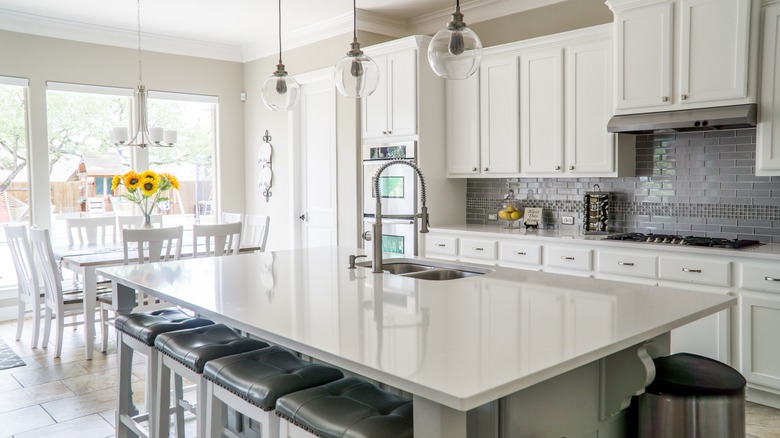3 Occasions When You Should Offer Over The Asking Price On A Home
Most of the time, homebuyers want to pay the lowest amount possible for the home they buy, but sometimes bidding over the asking price is a necessary tactic. Overbidding means offering some type of incentive to the seller to encourage them to sell to you over the competition. Paying more may not sound like an attractive step, but in a competitive real estate market, it may be what makes the difference between getting "the" home or not.
In 2021, 54% of homes were being sold at above their asking price. That's up from just 26% the year prior, according to Redfin. Taking that into account, there are a few key reasons why you should be considering offering more now.
If you don't offer more, someone else may, and that may mean you miss the opportunity to buy the home of your dreams. However, overbidding only applies in some situations. How do you know when you should be doing this? Here are three occasions when it makes sense.
You see the competition
If you know there's significant competition in the real estate market you're trying to buy into, offering above asking prices may be necessary to get any attention from the sellers. How do you know if that's the market you're in?
Kyle Hiscock at Rochester Real Estate Blog says there are a few key signs that your market is competitive. A low number of homes for sale is one indicator. Homes could also be selling quickly once they're listed, and often they will have multiple offers.
You can ask your real estate agent to help you learn more about your market's competitiveness based on these factors. Also, ask about things like the likelihood buyers will make cash offers or if prices are significantly higher within that particular neighborhood than they were just a few years ago. These are all indications that you have competition for the homes in that area.
You know this is the home for you
In some situations, you may know there's competition for the homes listed, but you also know this is the home you absolutely want to buy. You may love the features and layout. You may believe it's in the perfect neighborhood for you and your family. Other times, the character or special amenities in the backyard make the property exactly what you want.
Placing an offer over the asking price makes sense if you don't want this home to slip through the cracks, but be careful. Be sure to buy the home because it's right for you in every way, including financially.
Investopedia warns not to jump in too fast and to ensure the home is worth what you hope to pay for it, so that your appraisal comes through and, ultimately, you're able to secure a mortgage. Also, think long-term if you plan to sell the home in the next few years.
You're making a contingent offer
According to Rocket Mortgage, a contingent offer means you're placing an offer on the home that's viable only if certain conditions check out. Home contingencies help to protect the buyer, such as ensuring the home is in good condition. Another common instance of using contingencies is when you must sell your own home before buying this one.
If your offer is contingent on selling your existing house, that's going to slow down the process, and it could cause the seller to pull back on accepting. By offering more than the asking price, you're sweetening the deal enough to encourage them to wait and accept your bid even though it may take longer or may even not happen if you can't sell your home in time.
Depending on the guidance from your real estate agent, consider offering above the asking price when you know it's going to get the seller's attention, and the home is worth the investment.



